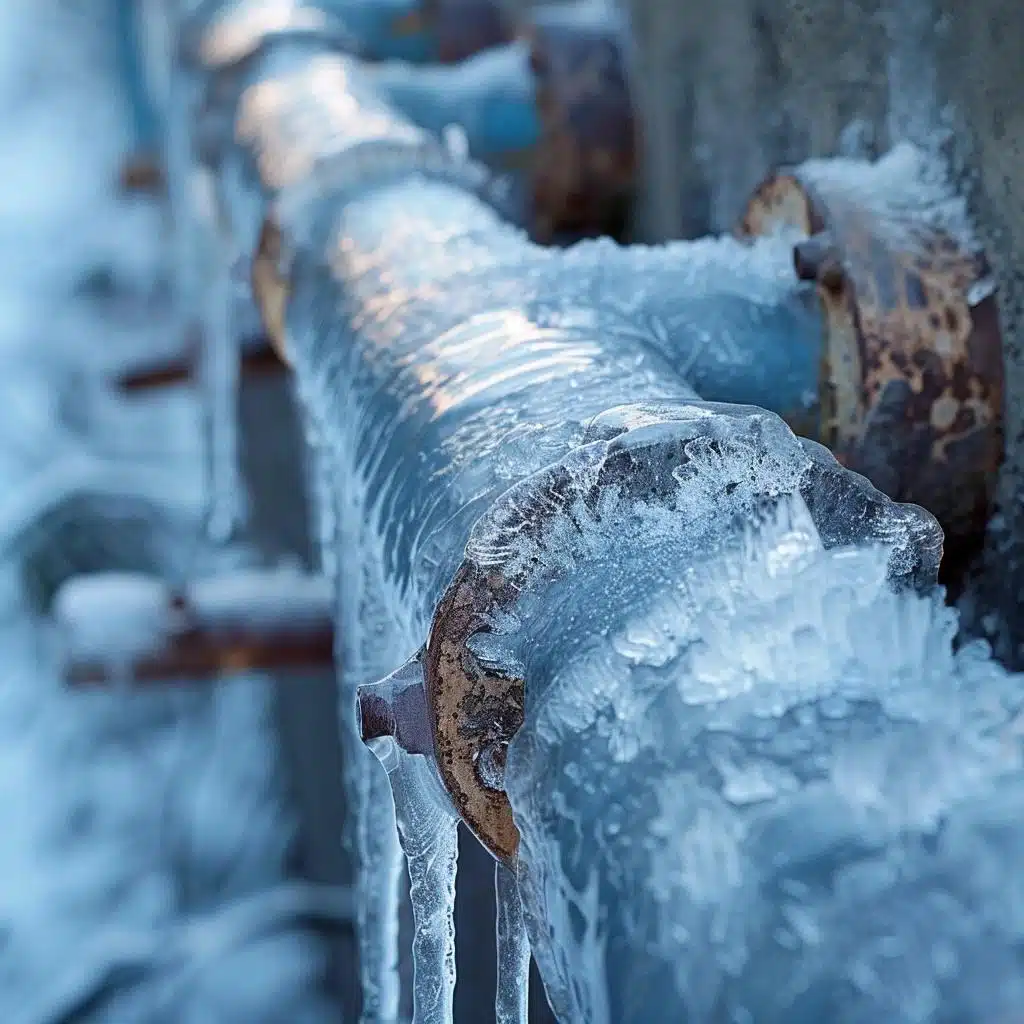How to Keep Your Pipes from Freezing Damage: Essential Advice
How to Keep Your Pipes from Freezing Damage: Essential Advice
Blog Article
We've uncovered the article about How to Prevent Your Pipes From Freezing down the page on the net and believe it made good sense to share it with you on this page.

Winter can ruin your pipes, especially by freezing pipes. Here's just how to stop it from occurring and what to do if it does.
Introduction
As temperatures decline, the danger of frozen pipelines boosts, potentially bring about costly repairs and water damages. Understanding how to stop frozen pipelines is critical for homeowners in chilly climates.
Recognizing Frozen Pipelines
What causes pipelines to freeze?
Pipes ice up when subjected to temperatures below 32 ° F (0 ° C) for expanded periods. As water inside the pipes ices up, it expands, putting pressure on the pipeline wall surfaces and potentially triggering them to rupture.
Threats and damages
Frozen pipes can cause water disruptions, residential property damages, and pricey repairs. Ruptured pipelines can flooding homes and create extensive structural damages.
Indicators of Frozen Piping
Recognizing frozen pipes early can stop them from bursting.
Exactly how to recognize frozen pipelines
Seek lowered water circulation from faucets, unusual odors or sounds from pipelines, and visible frost on exposed pipelines.
Avoidance Tips
Protecting susceptible pipelines
Cover pipes in insulation sleeves or use warmth tape to secure them from freezing temperatures. Concentrate on pipes in unheated or exterior locations of the home.
Heating strategies
Keep interior spaces adequately warmed, especially areas with plumbing. Open closet doors to enable cozy air to distribute around pipes under sinks.
Safeguarding Exterior Pipes
Garden hose pipes and exterior faucets
Separate and drain garden pipes prior to winter. Install frost-proof spigots or cover outdoor faucets with protected caps.
What to Do If Your Pipes Freeze
Immediate actions to take
If you think frozen pipes, keep taps open up to relieve pressure as the ice thaws. Make use of a hairdryer or towels taken in hot water to thaw pipes gradually.
Long-Term Solutions
Architectural modifications
Think about rerouting pipes far from outside walls or unheated locations. Include extra insulation to attic rooms, cellars, and crawl spaces.
Upgrading insulation
Buy top notch insulation for pipes, attic rooms, and walls. Correct insulation assists keep constant temperatures and reduces the risk of frozen pipelines.
Final thought
Preventing icy pipelines requires aggressive procedures and quick feedbacks. By comprehending the causes, indicators, and preventive measures, home owners can secure their plumbing throughout cold weather.
Helpful Tips to Prevent Frozen Pipes this Winter
UNDERSTANDING THE BASICS: WHY PIPES FREEZE AND WHY IT’S A PROBLEM
Water freezing inside pipes is common during the winter months, but understanding why pipes freeze, and the potential problems it can cause is crucial in preventing such incidents. This section will delve into the basics of why pipes freeze and the associated problems that may arise.
THE SCIENCE BEHIND FROZEN PIPES
When water reaches freezing temperatures, it undergoes a physical transformation and solidifies into ice. This expansion of water as it freezes is the primary reason pipes can burst. As the water inside the pipe freezes, it expands, creating immense pressure on the walls. If the pressure becomes too great, the pipe can crack or rupture, leading to leaks and water damage.
FACTORS THAT CONTRIBUTE TO PIPE FREEZING
Low Temperatures: Extremely cold weather, especially below freezing, increases the risk of pipes freezing. Uninsulated or Poorly Insulated Pipes: Pipes located in unheated areas, such as basements, crawl spaces, or attics, are more prone to freezing. Insufficient insulation or lack of insulation altogether exacerbates the problem. Exterior Wall Exposure: Pipes running along exterior walls are susceptible to freezing as they encounter colder temperatures outside. Lack of Heating or Temperature Regulation: Inadequate heating or inconsistent temperature control in your home can contribute to frozen pipes. PROBLEMS CAUSED BY FROZEN PIPES
- Pipe Bursting: As mentioned earlier, the expansion of water as it freezes can cause pipes to burst, resulting in significant water damage.
- Water Damage: When pipes burst, it can lead to flooding and water damage to your property, including walls, ceilings, flooring, and personal belongings.
- Structural Damage: Prolonged exposure to water from burst pipes can compromise the structural integrity of your home, leading to costly repairs.
- Mold and Mildew Growth: Excess moisture from water damage can create a favorable environment for mold and mildew growth, posing health risks to occupants.
- Disrupted Water Supply: Frozen pipes can also result in a complete or partial loss of water supply until the issue is resolved.
WHY CERTAIN PIPES ARE MORE PRONE TO FREEZING
- Location: Pipes located in unheated or poorly insulated areas, such as basements, crawl spaces, attics, or exterior walls, are at higher risk of freezing.
- Exterior Pipes: Outdoor pipes, such as those used for irrigation or exposed plumbing, are particularly vulnerable to freezing as they are directly exposed to the elements.
- Supply Lines: Pipes that carry water from the main water supply into your home, including the main water line, are critical to protect as freezing in these lines can affect your entire plumbing system.
- Underground Pipes: Pipes buried underground, such as those connected to sprinkler systems or outdoor faucets, can be susceptible to freezing if not properly insulated.
https://busybusy.com/blog/helpful-tips-to-prevent-frozen-pipes-this-winter/

I have been very taken with Preventing and dealing with frozen pipes and I really hope you liked the new entry. Loved our post? Please quickly share it. Let somebody else check it out. Thanks a lot for taking the time to read it.
Click Here Report this page